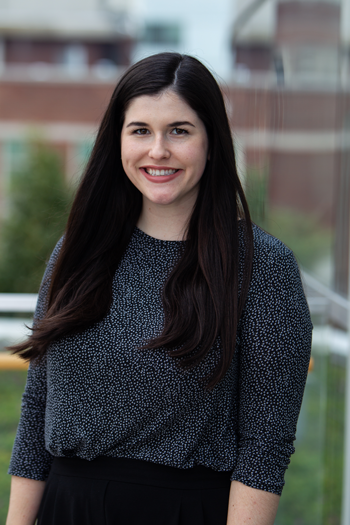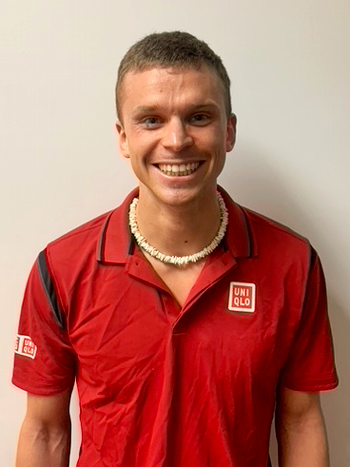4 tips for surviving your block exams, from our Students as Teachers experts
by Emma Mattson
Block exams present a new and exciting challenge during your clerkship year of med school, and we’ve gathered advice from five Students as Teachers experts about what, when, and how to effectively prepare for block exams. Here’s what they had to say!
Choose your study resources wisely
With so many study materials out there, it can be hard to know where to start. But don’t panic! Generations of other med students have tested and tried basically all of them and can tell you which are the best.

“Most students use the Step 2 CK UWorld question bank as the foundation for their studying,” reports M4 Jessica Zic. “It is helpful to supplement UWorld with study techniques that work well for you– like watching Online MedEd videos if you’re a visual learner like me!”
Still, UWorld is not one-size-fits-all. Med student Lex Erath suggests asking upperclassmen which book worked best for them to prepare for each specific clerkship.

“What worked really well for me was to prioritize working through the review book in the first half of the clerkship and slowly transition over to Uworld questions by the end,” Erath said. “Try to complete all the Uworld questions for every clerkship (even Medicine, and there’s a lot!).”
And as you’re reviewing material, don’t forget to organize the material in ways that will aid your learning style.
“[UWorld’s] answer explanations are some of the most thorough descriptions you’ll ever encounter, so I found it very helpful to take down some notes, which I later organized into specific themes/organ systems,” M4 Philip Wilson recalls. “Going back through to organize these notes was a great second pass of material after I had already answered questions about them.”
Planning and persistence are key

“I believe early preparation for each rotation is important to give you a knowledge foundation that makes clinical activities much more educational and your time with your clinical teams much more impactful,” med student Grant MacKinnon advises.
“I would try to get through a short textbook on the subject during the first week of the rotation to provide this base and let my patient interactions build off of it. By doing this, you will be surprised how much more efficient your later studying in the block becomes.”
Wilson also encourages M2 students to begin studying as early as possible.
“Doing some practice questions every evening from the very first day allows you to spread what can seem like a lot of questions out more evenly, plus it can build a rhythm for the course of the entire clerkship,” Wilson said. “There will be long, tiring days when you won’t have the energy to study at night. That’s okay—committing to putting in consistent study time will allow you to build in days like this where you take an evening off to get some well-deserved rest.”
And, Erath says, don’t forget to adapt your study habits to your own personal experience in clinic.
“You’ll learn a ton on the wards, but everyone’s experience will be different, so you’ll have to self-diagnose the things you weren’t as exposed to or didn’t have a chance to learn on service,” Erath said.
Your patients will be your best teachers— and your top priority

“Clerkship year brings new challenges and new opportunities when it comes to studying for exams,” Wilson said. “Unlike first-year block exams, you’ll have many responsibilities in addition to just learning the material, but each of these new patient care responsibilities is another chance for you to practice spaced repetition and learning in multiple contexts.”
Wilson also suggests creating goals for each day in clinic— something concrete, like reviewing the questions important for a patient with new atrial fibrillation or practicing interpretation of fetal heart tracings.
“While you’re in the hospital, focus on learning from your patients over doing questions or studying from books—there’s always an opportunity to study by going in depth on a particular topic relevant to your patient,” Wilson said. “What I learned from the patients I was following have stuck with me far longer than anything else I learned during clerkship year.”
And no matter what happens, your patients should always come first.
“I won’t be the first, nor the last, person to tell you to prioritize your patients and not the shelf exam,” MacKinnon said. “VUSM’s unique clerkship curriculum supports student involvement in clinical activities and should lessen the anxiety attributed to exams. If you are able to contribute much on your clinical team, you will pass the shelf with flying colors!”
Take advantage of all the time you spend in the hospital
On your clerkship rotations, you’ll be surrounded by expert teachers like your residents and attendings. Ask questions, listen closely, and take notes when you can.
“Some weeks will be busier than others, so make the most of the clerkship lectures and impromptu teaching from your team while you’re in the hospital or clinic,” Zic said. “When you’re not as busy on the wards, you can knock out extra practice questions and dive deeper into more complex topics.”
Wilson even advises students to bring a notebook and jot down the teaching points your residents and attendings offer during rounds.
In the end, the payoff will be worth it
At the end of each block, all the studying you’ve put in will be well rewarded when you complete the exam. The work you’ve put in will have long-lasting effects as well!
“Doing well on shelf exams means you’re better prepared for both Step 1 and Step 2,” Erath said. “Studying to do as well as you can on shelf exams (as opposed to the bare minimum) will set you up for success on Step 1.”